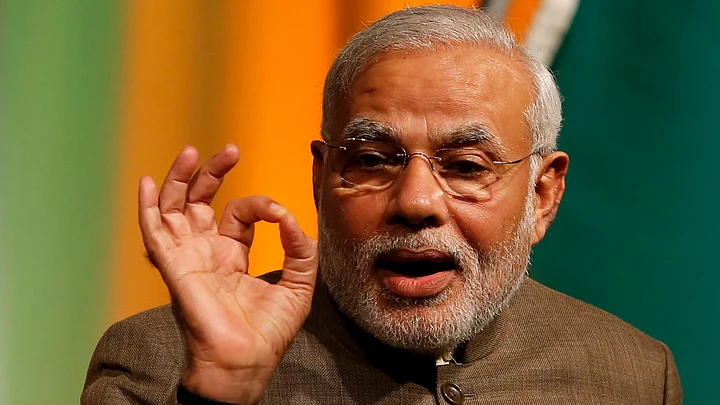A year ago, be it the Lutyen’s liberal, the opposition party or the educated secular, all said in one voice: If Modi wins, he will be the next Hitler.
Speculations like India will be ravaged by Hindu-Muslim riots, corporations will own the Indian economy and our democracy will turn into a right-wing conservative nation were projected by his detractors.
It is a little over nine months now. Does Prime Minister Narendra Modi remind you of Hitler?
There were those who were very fond of him and they drew their own fantasies. Some believed he will instantly overhaul the tired old economy. Others said he will be the next Margaret Thatcher, who initiated a privatisation boom in 80s UK.
All in all, everyone had extreme expectations from Modi. Like he had a Harry Potter wand. One swoosh and all of India’s problems get fixed.
What we see now is not Superman or Hitler, but a smart man. Even after winning by an unprecedented margin at the Lok Sabha elections in 2014, Modi has constantly reached-out to people from the very first day.
Similarities with Vajpayee and Shastri
Modi has been similar to former Indian Prime Minister Atal Behari Vajpayee. His constant meetings with world leaders and the unending media coverage is exhausting to watch, but he has established relationships with South-East Asia and secured the US as an ally.
Those who claimed that Modi would sell India to the corporate world must be eating their words. He dismissed privatisation of Railways and PSU banks. In fact, he has ensured continuity with the previous UPA government but without policy paralysis.
An incremental improvement is that the Modi-led BJP government is thinking beyond vote bank politics. Unlike the UPA government, where welfare policies were for those below the poverty line, the Modi-government introduced initiatives for those who are poor but not below the poverty line.
For instance, in the latest budget, we saw pension provisions for those above 60 years and health care at affordable rates. If implemented as envisaged, it would alter the lives of millions in the country.
In this respect, Modi is more like former Congress Prime Minister Lal Bahadur Shastri, who questioned the Nehruvian policies and tried to improve the quality of life of the aam aadmi. Unfortunately, he didn’t live long enough to reform the Nehruvian heavy industry policy.
Learning from his mistakes
Modi is sharp and has learnt from the mistakes he has made. The only major fault by the Indian PM is probably the Rs 10 lakh suit with his name printed on it.
A criticism that the Prime Minister is facing is that he has been quiet on the communal and controversial statements made by his party members. Be it Sadhvi’s ‘love jihad’ comment, Unnao MP Sakshi Maharaj’s statement on Hindu women bearing four children or Rajeshwar Singh’s ‘ghar wapsi’ campaign, Modi has not come out and criticised them.
Instead of speaking out loud and making tall promises, he has delivered silently. The BJP has started to crackdown on all Hindutva renegades. Both Sakshi Maharaj and Sadhvi Prachi have shut up and the RSS pracharak, Singh has been mysteriously sent on leave.
Modi clearly believes in letting his action speak louder than words.
(At The Quint, we question everything. Play an active role in shaping our journalism by becoming a member today.)
